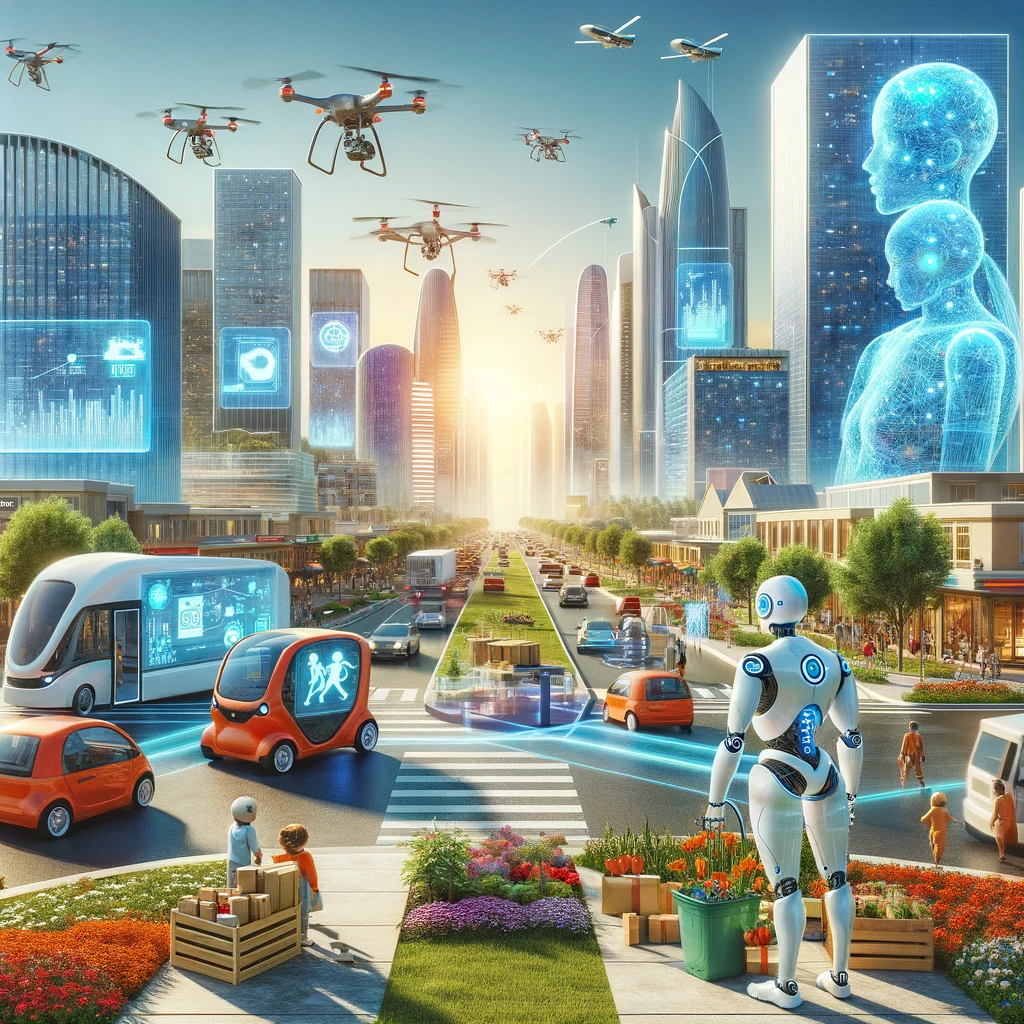In the landscape of modern technology, artificial intelligence (AI) has emerged as a transformative force, not confined to the realms of academia and industry but increasingly integrated into everyday life. This blog explores practical applications of AI that are reshaping the way we live, work, and interact, underscoring the profound impact of this technology on daily activities and routines.
1. Home Automation: The Smart Living Experience
One of the most relatable applications of AI is in home automation. Smart homes equipped with AI-driven technology offer convenience and enhanced security. Voice-activated assistants like Amazon’s Alexa or Google Home allow users to control lighting, manage temperature, and secure their homes with simple voice commands. These systems learn from your habits and preferences to provide tailored suggestions, optimizing energy use and enhancing comfort.
2. Healthcare: AI as a Lifesaver
AI’s impact in healthcare is profound, offering predictive tools that assist in early diagnosis and personalized medicine. AI algorithms analyze vast amounts of medical data to spot trends that are imperceptible to humans. For instance, AI-powered imaging tools can more accurately diagnose diseases like cancer at an early stage, significantly improving patient outcomes. Furthermore, AI-driven robots assist in surgeries, increasing precision and reducing recovery times.
3. Transportation: Smarter and Safer Travel
AI is revolutionizing the transportation sector by making travel safer and more efficient. Autonomous vehicles, such as those developed by Tesla and Waymo, use AI to interpret sensory information to safely navigate roads without human input. AI also enhances public transportation systems through predictive maintenance and real-time traffic management, reducing delays and improving passenger experience.
4. Finance: Securing and Streamlining Operations
In finance, AI is pivotal in fraud detection and risk management. AI systems analyze transaction patterns to identify anomalies that may indicate fraudulent activity, thereby enhancing security. Additionally, AI-driven chatbots provide customer support and financial advice, streamlining operations and improving service delivery in banking institutions.
5. Education: Personalized Learning Pathways
AI is transforming education by enabling personalized learning experiences. AI-powered platforms adapt to the learning pace and style of each student, offering customized resources and schedules. This not only enhances learning outcomes but also makes education more accessible, helping bridge gaps for students with varying needs and capabilities.
6. Retail: Enhancing Customer Experience
In the retail sector, AI is used to predict consumer behavior and personalize shopping experiences. AI algorithms analyze shopping patterns and preferences to offer tailored recommendations. Virtual fitting rooms and AI-driven chatbots enhance the shopping experience, making it more engaging and customer-friendly.
7. Environmental Monitoring: AI for a Sustainable Future
AI applications extend to environmental monitoring, where they predict weather patterns and track climate change impacts. AI-driven systems analyze data from satellites and sensors to provide accurate forecasts and real-time alerts for natural disasters, aiding in timely evacuations and better preparedness.

8. Entertainment: AI-curated Content
In entertainment, AI algorithms curate personalized content based on viewing habits. Platforms like Netflix use AI to recommend movies and shows, enhancing user experience and engagement. AI is also pivotal in creating realistic visual effects and animations in films and video games, pushing the boundaries of digital entertainment.
Conclusion
Artificial intelligence is no longer just a futuristic concept but a practical reality that permeates many aspects of our daily lives. From making homes smarter to transforming how we receive healthcare, commute, and even shop, AI’s integration into daily life is making services more accessible, experiences more personalized, and operations more efficient. As we continue to harness this powerful technology, its potential to further enhance and simplify our daily routines is boundless.
